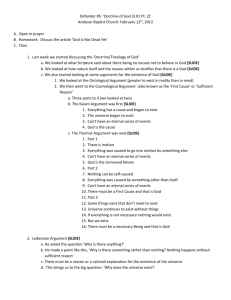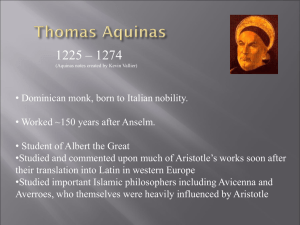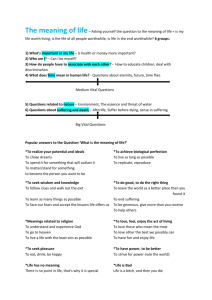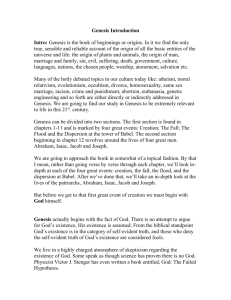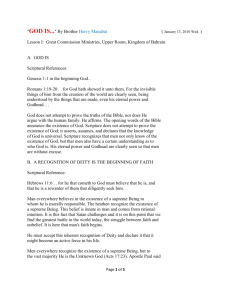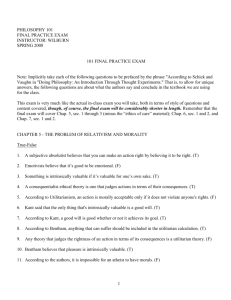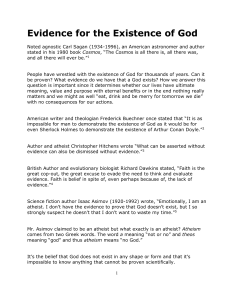Week 1- Answering the Why - University Christian Fellowship
advertisement
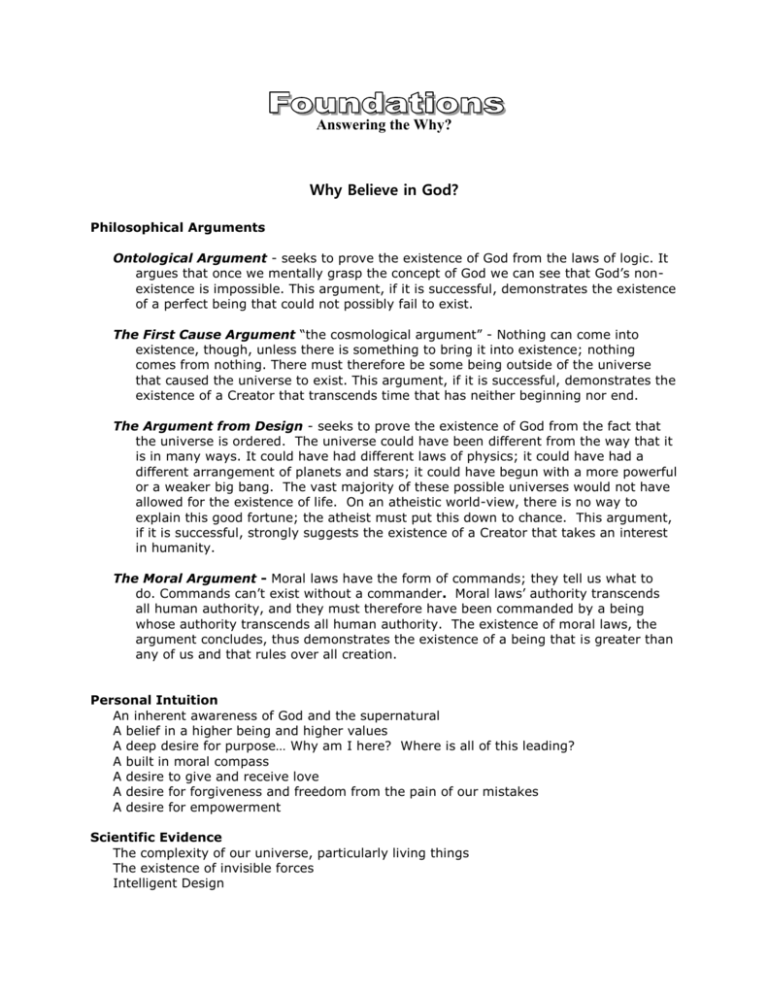
Answering the Why? Why Believe in God? Philosophical Arguments Ontological Argument - seeks to prove the existence of God from the laws of logic. It argues that once we mentally grasp the concept of God we can see that God’s nonexistence is impossible. This argument, if it is successful, demonstrates the existence of a perfect being that could not possibly fail to exist. The First Cause Argument “the cosmological argument” - Nothing can come into existence, though, unless there is something to bring it into existence; nothing comes from nothing. There must therefore be some being outside of the universe that caused the universe to exist. This argument, if it is successful, demonstrates the existence of a Creator that transcends time that has neither beginning nor end. The Argument from Design - seeks to prove the existence of God from the fact that the universe is ordered. The universe could have been different from the way that it is in many ways. It could have had different laws of physics; it could have had a different arrangement of planets and stars; it could have begun with a more powerful or a weaker big bang. The vast majority of these possible universes would not have allowed for the existence of life. On an atheistic world-view, there is no way to explain this good fortune; the atheist must put this down to chance. This argument, if it is successful, strongly suggests the existence of a Creator that takes an interest in humanity. The Moral Argument - Moral laws have the form of commands; they tell us what to do. Commands can’t exist without a commander. Moral laws’ authority transcends all human authority, and they must therefore have been commanded by a being whose authority transcends all human authority. The existence of moral laws, the argument concludes, thus demonstrates the existence of a being that is greater than any of us and that rules over all creation. Personal Intuition An inherent awareness of God and the supernatural A belief in a higher being and higher values A deep desire for purpose… Why am I here? Where is all of this leading? A built in moral compass A desire to give and receive love A desire for forgiveness and freedom from the pain of our mistakes A desire for empowerment Scientific Evidence The complexity of our universe, particularly living things The existence of invisible forces Intelligent Design Why Follow Christianity? Historical Evidence The vast quantity and the historical record of Christianity The nearness of the writings to the events they depict The historical and archeological accuracy of the Bible Jesus Christ was an historical figure The Christian Worldview Does what the Bible say about humans and the world around us match what we see? The fallen nature of human beings The existence of Evil An all loving God Moral Accountability and God’s judgment Moral and Personal Impact Does what Jesus teach lead us into a better way to live and to relate to one another? God’s desire for a personal relationship with each one of us The highest value of love Personal empowerment from God through the Holy Spirit Humility, compassion, peace, patience, etc. Christianity versus other Religions Is Christianity different from other Religions? Is it the truth? Other religions offer a pathway to reach God, Christianity is the proclamation that God has come to us through Jesus Christ Application: Reflect on why you believe in God or are seeking Him. Ask yourself the question where do I want this journey to take me and ask God to help guide you.




